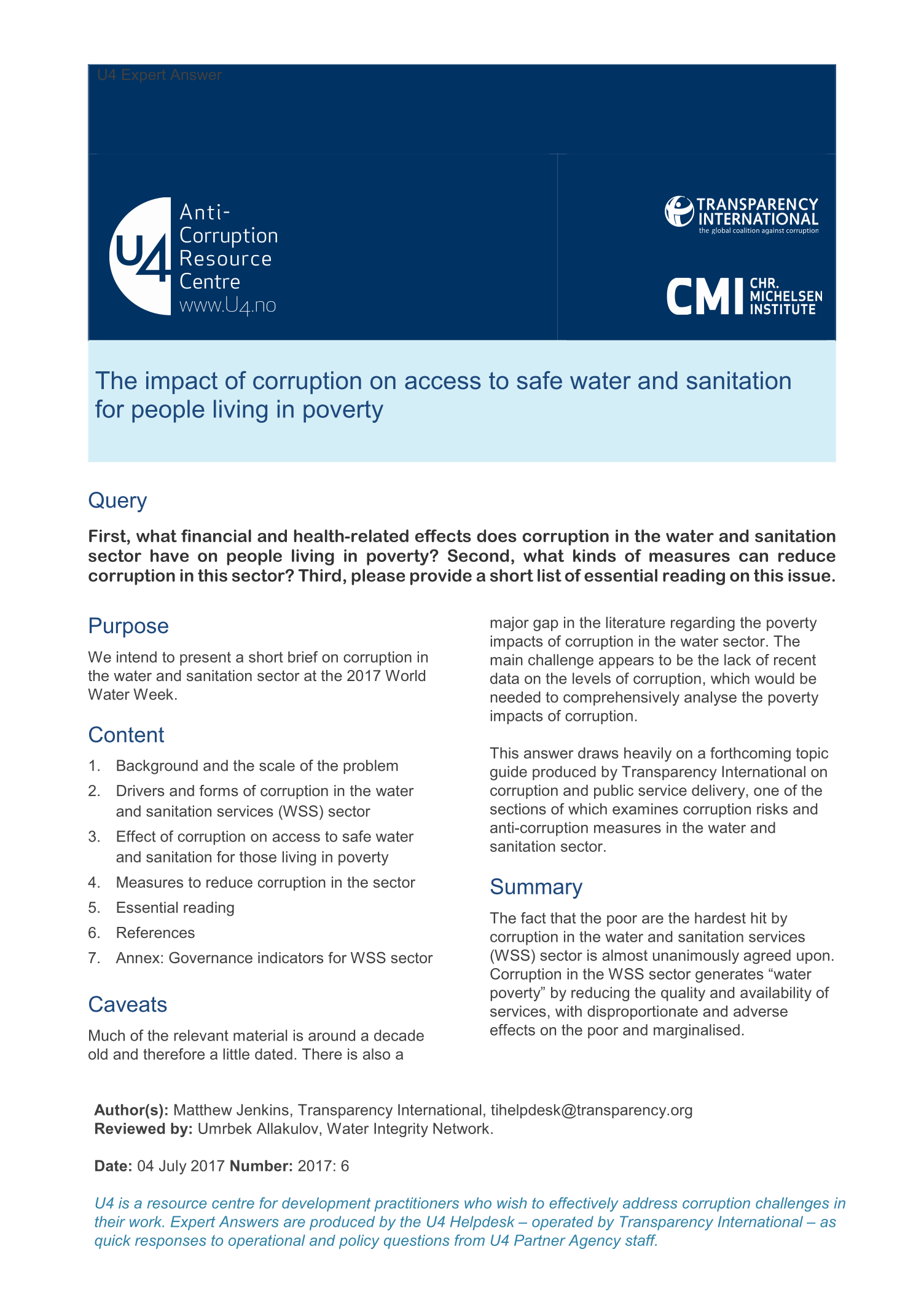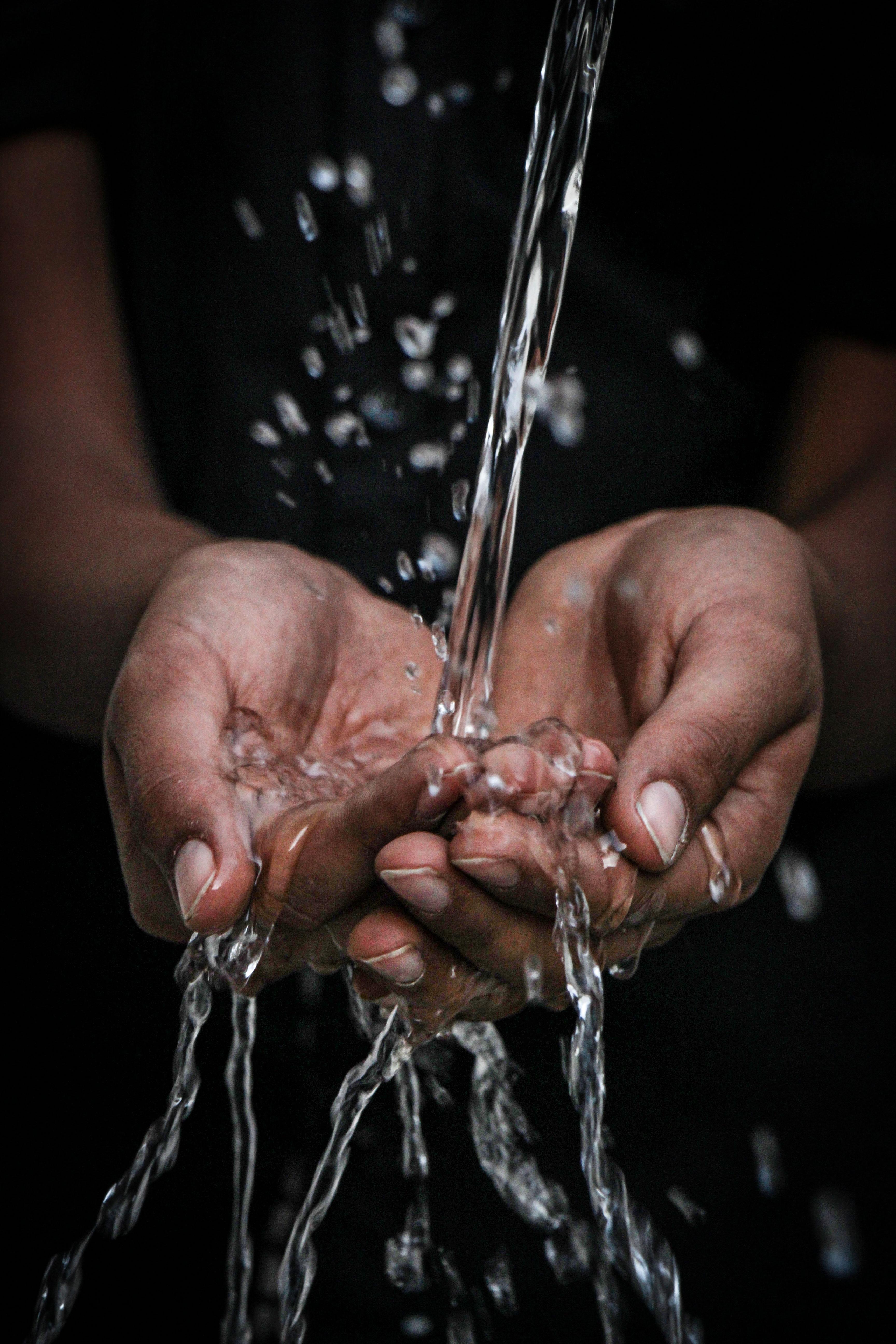U4 Helpdesk Answer
The impact of corruption on access to safe water and sanitation for people living in poverty
The fact that the poor are the hardest hit by corruption in the water and sanitation services (WSS) sector is almost unanimously agreed upon. Corruption in the WSS sector generates “water poverty” by reducing the quality and availability of services, with disproportionate and adverse effects on the poor and marginalised.
Corruption contributes to the failure to enforce laws meant to protect water sources from encroachment and pollution, produces discriminatory outcomes in water flows and irrigation patterns in favour of the powerful, leads to poor quality water infrastructure and fatally undermines fair and affordable access to water and sanitation. It consequentially exacerbates the already precarious lives and livelihoods of the poor – especially where these are related to other vulnerabilities such as gender, age or ethnicity – and reduces their ability to escape poverty.
While a number of qualitative studies have identified the kinds of corruption in the sector which have particularly severe and deleterious effects on the poor, measuring this “poverty impact” has proved more challenging. Nonetheless, some, albeit rather dated, quantitative estimates do exist, and overall the literature lends some impression of the effect of corruption on the poor, particularly in terms of financial and health-related impact.
Measures to reduce corruption in this sector can be categorised in line with a recent “integrity wall” framework developed by the Water Integrity Network. Such approaches range from scaling up diagnostic efforts, promoting fair competition in procurement, strengthening monitoring and oversight from above and below, and promoting participation in water governance by the poorest and most marginalised in society.

Cite this publication
Jenkins, M. 2017. The impact of corruption on access to safe water and sanitation for people living in poverty . Bergen: U4 Anti-Corruption Resource Centre, Chr. Michelsen Institute (U4 Helpdesk Answer 2017:6)
Disclaimer
All views in this text are the author(s)’, and may differ from the U4 partner agencies’ policies.
This work is licenced under a Creative Commons Attribution-NonCommercial-NoDerivatives 4.0 International licence (CC BY-NC-ND 4.0)

